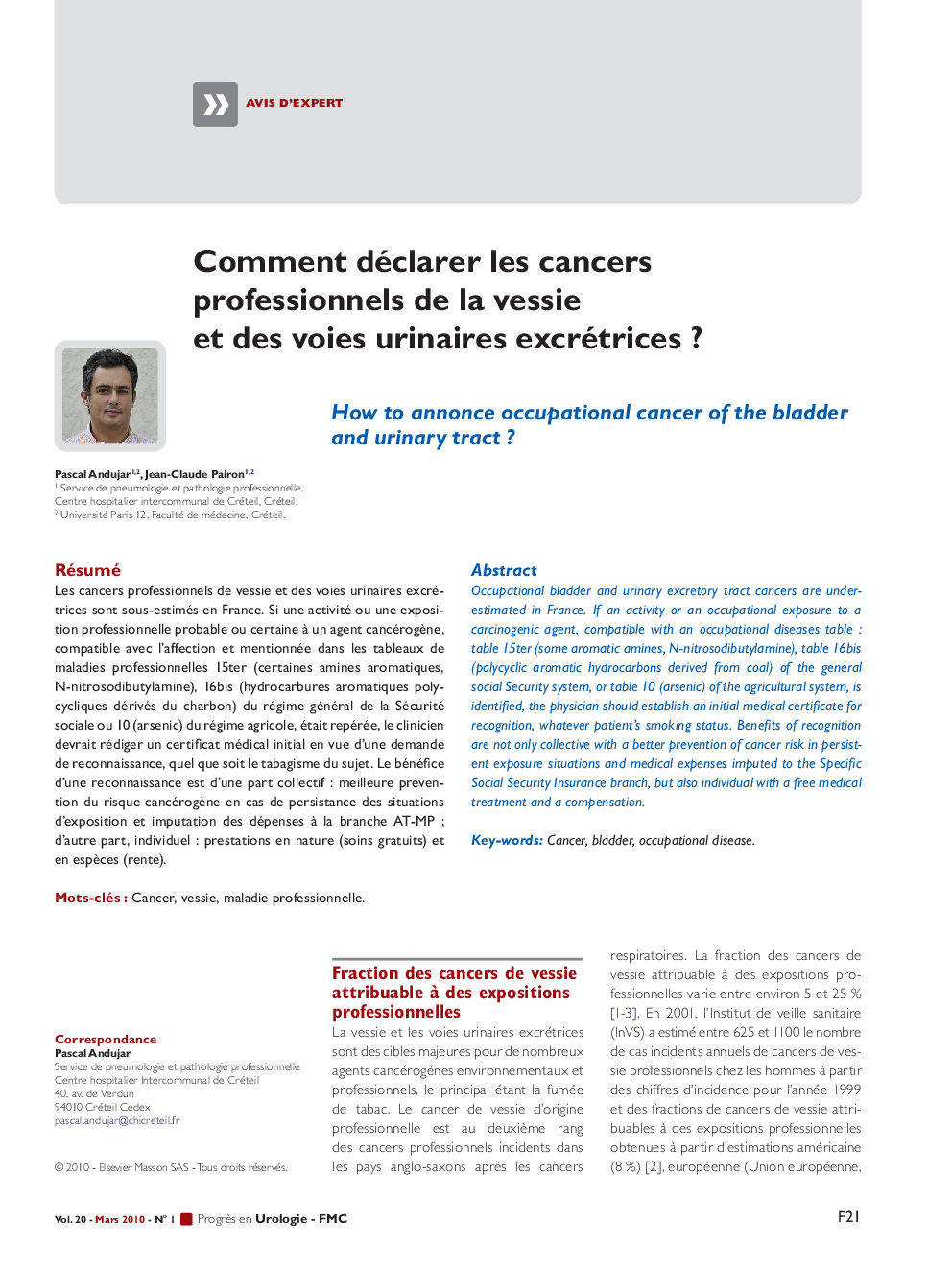| Article ID | Journal | Published Year | Pages | File Type |
|---|---|---|---|---|
| 4273961 | Progrès en Urologie - FMC | 2010 | 6 Pages |
RésuméLes cancers professionnels de vessie et des voies urinaires excrétrices sont sous-estimés en France. Si une activité ou une exposition professionnelle probable ou certaine à un agent cancérogène, compatible avec l’affection et mentionnée dans les tableaux de maladies professionnelles 15ter (certaines amines aromatiques, N-nitrosodibutylamine), 16bis (hydrocarbures aromatiques polycycliques dérivés du charbon) du régime général de la Sécurité sociale ou 10 (arsenic) du régime agricole, était repérée, le clinicien devrait rédiger un certificat médical initial en vue d’une demande de reconnaissance, quel que soit le tabagisme du sujet. Le bénéfice d’une reconnaissance est d’une part collectif : meilleure prévention du risque cancérogène en cas de persistance des situations d’exposition et imputation des dépenses à la branche AT-MP ; d’autre part, individuel : prestations en nature (soins gratuits) et en espèces (rente).
Occupational bladder and urinary excretory tract cancers are underestimated in France. If an activity or an occupational exposure to a carcinogenic agent, compatible with an occupational diseases table : table 15ter (some aromatic amines, N-nitrosodibutylamine), table 16bis (polycyclic aromatic hydrocarbons derived from coal) of the general social Security system, or table 10 (arsenic) of the agricultural system, is identified, the physician should establish an initial medical certificate for recognition, whatever patient's smoking status. Benefits of recognition are not only collective with a better prevention of cancer risk in persistent exposure situations and medical expenses imputed to the Specific Social Security Insurance branch, but also individual with a free medical treatment and a compensation.
